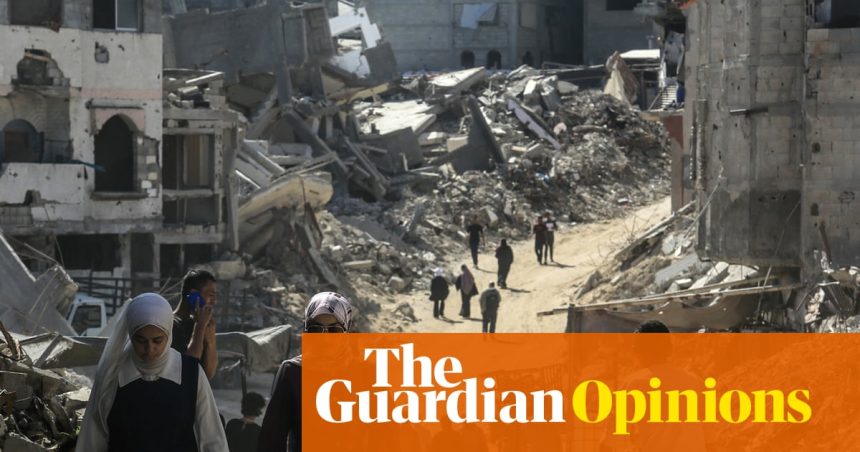The war has ended, and it’s time for me to return to my coffee, my bread and my poetry. Yet I don’t know what it means to return to life, after death has lived within us down to the marrow. Death had us memorised by heart, reciting our names one by one with unwavering precision. We grew accustomed to it too, in all its forms and colours, until funerals became a daily ritual, much like a weather report we already know by heart. It rained death every day, and our homes scattered like dry leaves in an autumn wind.
But another war has begun, of a different kind, more ruthless. The battles no longer take place only in the streets, but in every moment of life, in every step across the rubble, in every attempt to reclaim what remains of our daily spirit. The first chapter of this new war was the brutal anticipation of the roads leading to what remains of homes, or heaps of stones. With the destruction stretching as far as the eye can see, the roads guided us toward what is left of ourselves and our memory.
Now, if Israel allows us to live, death will pour meaning into life. We must repair our dictionaries, reclaim our morning rituals, let the plates return to their tables and the road regain its usual calm on the way to school. And I must dust off my knees and ride the horse once more.
Meanwhile, Salam, my uncle’s granddaughter, is discovering food for the very first time. She touches its colours and explores its flavours with her tiny senses. Having grown up on lentils alone, since the day she was born, she now finds fruit and vegetables available in Gaza’s markets with the ceasefire. When we handed her a banana, she didn’t know what to do with it and tried to eat it with the peel on. Then she tried an apple, and new words began slipping into her little food dictionary, as if each bite were opening a whole new world of life for her.
In the Sabra neighbourhood where I live, neighbours are gradually returning, pitching tents on what were once homes. The streets are filled with tons of war remnants: unexploded hand grenades, or ones rigged to detonate if moved, half-burnt smoke bombs, explosives meant to demolish houses, mortar shells, aerial bombs and chemical residues left from partially burnt munitions.
Dozens of children have been injured in the past two days from playing with or stumbling across these hazards. People return slowly, cautiously – but not everyone; the fear of Israel returning to the battlefield is present in every step. No one truly believes the annihilation has stopped, or that it has ended. The place is wrapped in denial and shock, as if memory can no longer hold all this pain. People need life, nothing more. Gaza, after all it has endured – pain, betrayal, neglect – deserves a real chance at living, a genuine one, not fragile ceasefires.
In the same neighbourhood, armed groups that emerged during the war are multiplying. What is happening here is not the birth of a new order, but a vacuum filled with fear, opportunism and chaos. Local gangs are appearing in the shadows, armed and stripped of any moral restraint, and many believe they are not spontaneous forces, but tools exploited, or quietly tolerated, by Israel. This phenomenon does not aim only at control, but at dismantling Gaza’s social fabric after its buildings have been torn apart, leaving residents in a constant state of fear and uncertainty, where every step toward life feels fraught with danger.
The annihilation may end, but the occupation continues as it did before 7 October 2023. The blockade remains, settlements expand and daily oppression persists. We return to our daily losses on the news, but in quieter, lower tones, as the poet and author Mahmoud Darwish said: “Our losses: from two martyrs up to eight, every single day, 10 wounded, 20 homes, 50 olive trees, in addition to the structural damage that will strike the poem, the play, and the unfinished painting.”
after newsletter promotion
-
Sondos Sabra, a writer and translator based in Gaza, has been accepted on to a Creative Writing MA programme at Lancaster University and is currently awaiting news on whether the UK government will assist with her evacuation. More of her diaries appear in Voices of Resistance: Diaries of Genocide

Leave a Reply